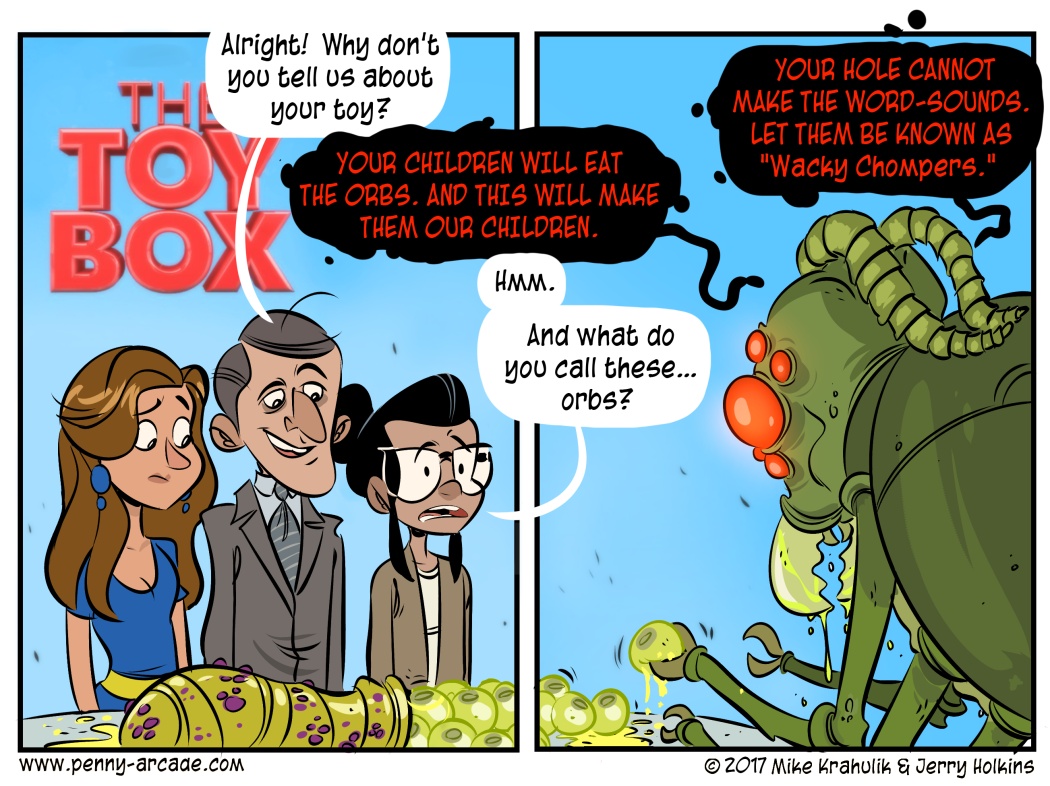I thought it was best to ask Brenna for permission on this one, lest she come across it on one of the megatrawls she performs on the archive every few months. I said, "Michael and I want to make a comic about your vagina," a sentence which I believe is unprecedented. After a brief outline, the strip was authorized.
It is my opinion, which I think is still allowed but it can be difficult to tell, that pursuing women who do not have red hair isn't a good time investment. Eventually you will look at her hair, realize it's not red, and come to understand that you've settled for less. It hasn't been my experience that there is any caustic resin produced at the, um, "venue." That's a misnomer. What you have to watch for are the surprisingly strong pedipalps.
Everybody is playing Letterpress, because it is Boggle Q-Bert and that's a good thing to be. It's not without its problems, though; words games are only as good as their dictionaries allow them to be. There are some deep holes here, and they aren't the good kind. Utterly commonplace, everyday words like "flavacol," "breathplay," and "zoophile" lie forlorn, their points unscored. Finding one of these deeply normal words in the soup and then being denied its use stirs some ancient organ to life in my gut; I think it is the organ responsible for war.
There are things I don't like, though, that aren't connected with the aforementioned. One of the best things about Hero Academy is that you can mess around on your turn, over and over, iterating the perfect use of your resources until you've found the correct use and then fire this optimal configuration at your foe as though from a cannon. Between turns in Letterpress, when your foe is busy using online tools to cheat, you can choose letters and try to make words - but you can't check them against the dictionary because "it's not your turn." This, coupled with its porous knowledge of the language ostensibly being used to play the game deprives you of meaningful play for no actual reason.
It does something else I don't like, and I think the design word for it is "degenerate." It may not be exactly right, but it's close. The term is defined for normal people as "Having lost the physical, mental, or moral qualities considered normal and desirable; showing evidence of decline." Being obsessed with the idea that game design posits a kind of morality, that language really turns my crank. But usually it means that there's some weakness in the game that can be exploited, and in the case of Letterpress it often (as in, every time for me) presents Q no U scenarios. There aren't many words that fit the bill, so you'll end up playing these long, interesting games full of awesome choices and ripostes until somebody just spells Qi. I know how to get around it; you get one of those words out of the way early, or you don't leave the score margin close enough for this maneuver to work. But playing around it doesn't mean its not there, it means that it unnecessarily informs the entire match because it is suspended overhead.
(CW)TB out.
